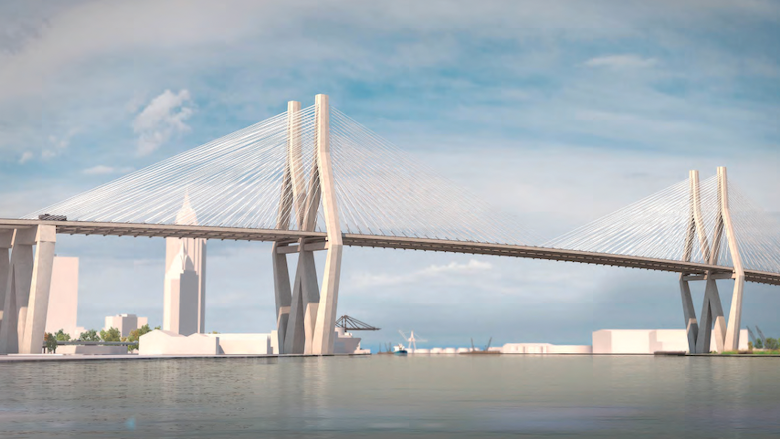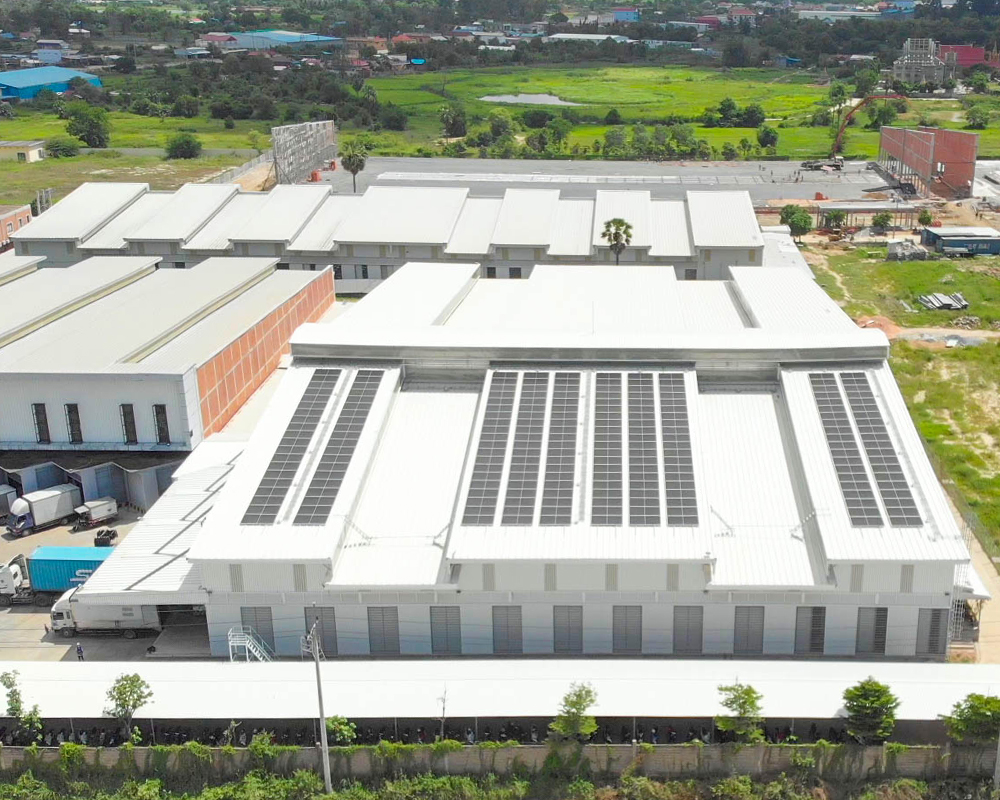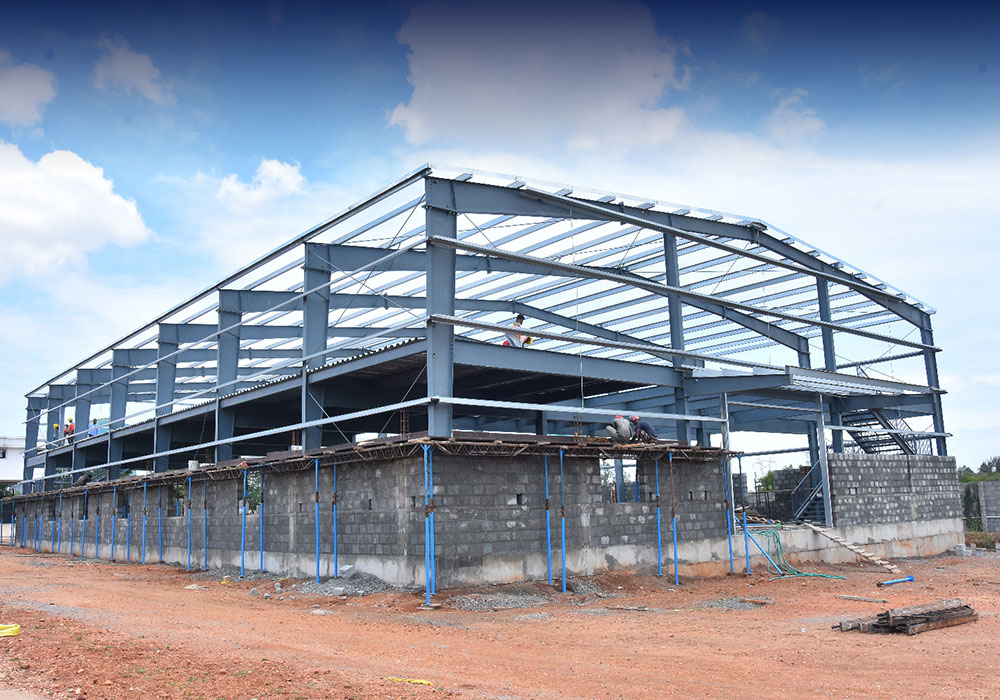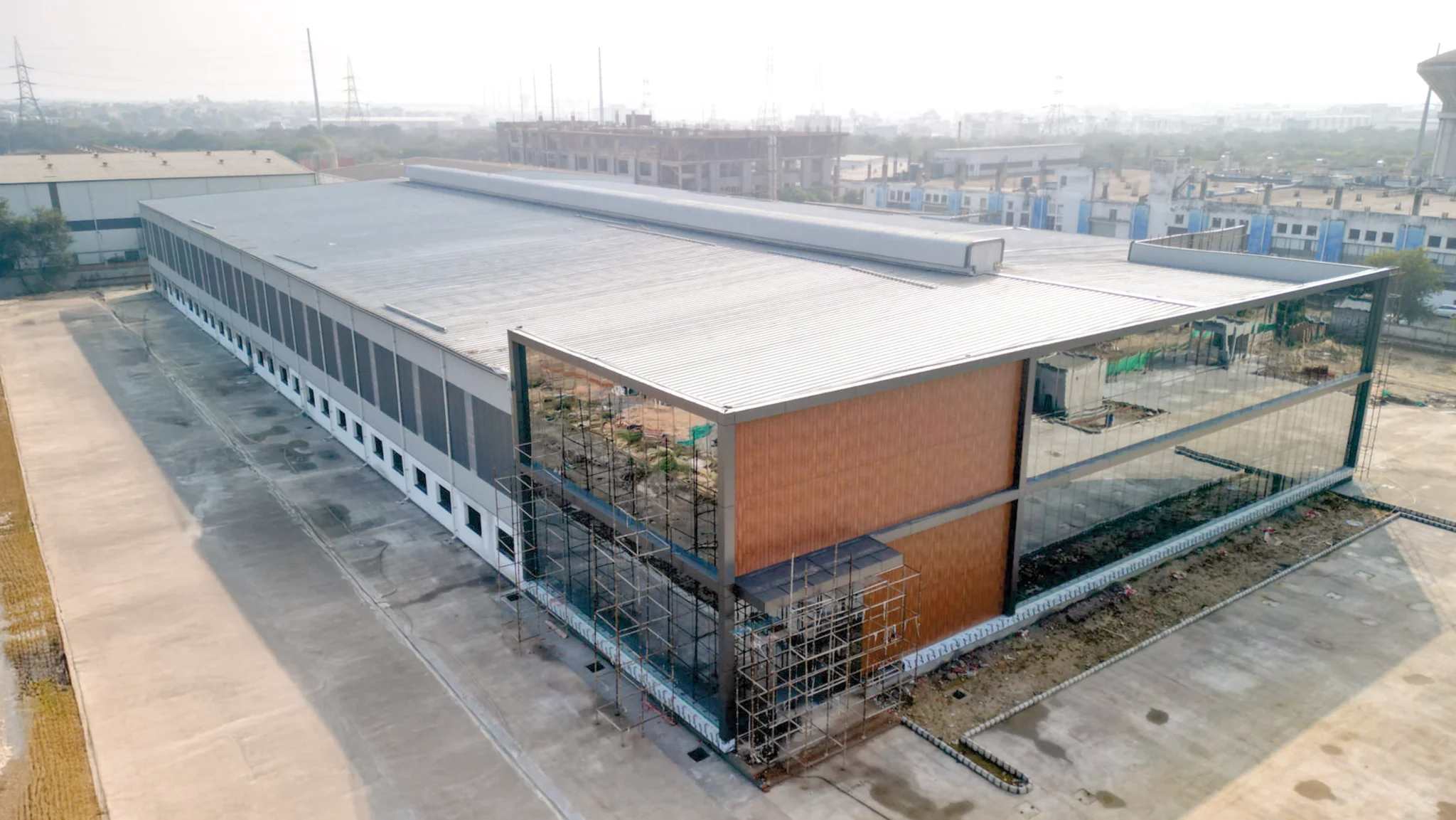
$3.7B Mobile Bridge Project Moves Forward After Contractor Shakeup
[ad_1]

The long-delayed, $3.7-billion I-10 Mobile River Bridge and Bayway Widening Project could get going by end of this year, following a contractor shake-up and the fast-tracking of a $550-million federal grant.
Punctuated by a new 2.5-mile-long, cable-stayed bridge spanning the Mobile River navigational channel, the Alabama Department of Transportation (ALDOT) project aims to eliminate traffic congestion by bypassing two aging tunnels and replacing more than 7 miles of existing bridges across Mobile Bay with wider structures 14 ft above the 100-year storm surge level. Seven interchanges in the 10-mile project corridor will also be reconfigured.
The project is one of 180 federal infrastructure projects to be expedited as part of a push to streamline grant approvals, the U.S. Dept. of Transportation announced May 7, a designation that helps finalize the $550-million Bridge Investment Program grant awarded in 2024.
First proposed in the 1990s, the project stalled in 2019 due to public pushback on ALDOT’s proposal to utilize a public-private partnership, which would have resulted in Mobile River bridge tolls as high as $6 per trip. A 2022 agreement by area metropolitan planning organizations on a revamped tolling strategy capped the passenger car toll at $2.50. This enabled ALDOT to revive the project as two concurrent state-administered progressive design-build efforts, with an estimated total cost at the time of $2.7 billion.
In 2023, the agency selected a joint venture led by Kiewit Infrastructure South Co., Massman Construction Co., and Traylor Bros., Inc. (KMT) for the Mobile River bridge and approaches. Mobile Bayway Constructors (MBC), led by Flatiron Constructors and Lane Construction Co., was tapped to oversee replacement of the Bayway structures.
More challenges arose the following year, however, as rising material and labor costs led ALDOT to pause the project for 60 days. In March, ALDOT announced that MBC was withdrawing from the project by mutual agreement. In an agency statement reported in local news outlets, ALDOT chief engineer Ed Austin said that the use of progressive design-build “allows us the flexibility needed to make key decisions related to project development. This is another step in our effort to ensure the project can be completed in a timely, safe, and cost-effective manner.”
Neither ALDOT nor Flatiron responded to ENR’s request for comment regarding MBC’s departure. Kiewit referred questions regarding the project contract and status to ALDOT.
Under the state’s procurement laws, the Bayway portion’s only other qualified proposing team, KMT, was next in line for the assignment. On May 6, ALDOT announced that KMT would indeed oversee the entire project, now estimated to cost $3.7 billion. According to published reports, a guaranteed maximum price has yet to be finalized.
According to agency statements, preconstruction on the bridge will begin this summer with KMT conducting load testing of 24-in.-diameter square precast piles. While ALDOT officials have publicly expressed hope for an official groundbreaking by the end of 2025, the final piece of the funding structure—a Transportation Infrastructure Finance and Innovation Act (TIFIA) loan for an undisclosed amount—has yet to be finalized.
Built in 1973, the twin 3,000-ft-long tunnels that currently carry I-10 below the Mobile River are operating at more than double their original capacity of 35,000 vehicles a day. Along with providing much-needed capacity, the new bridge will have at least 215 ft of vertical clearance above the channel to preserve shipping traffic. Alabama Gov. Kay Ivey (R) has pledged that tolls on the crossing will be eliminated once all project loans have been repaid.
[ad_2]
Source link
Post a Comment
You must be logged in to post a comment.






